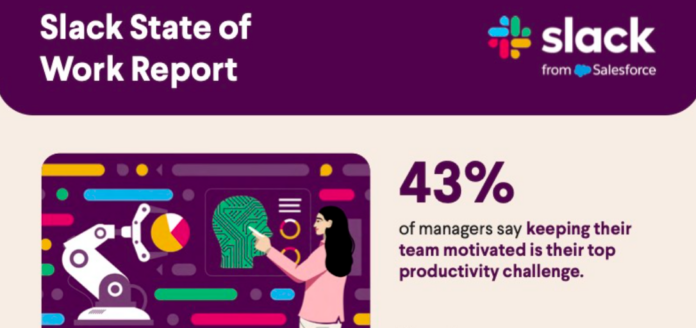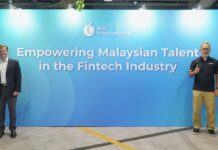Companies in Singapore are at the forefront when it comes to unlocking new levels of employee productivity with time-saving technologies such as AI, findings of the latest State of Work report from Slack show.
Slack conducted this global survey in partnership with Qualtrics between February 24 and March 21, 2023.
The total sample size was 18,149 desk workers and executives across sectors in the United States (3,115), Australia (2,034), France (2,039), Germany (2,032), United Kingdom (2,027), India (2,039), Singapore (1,341), Japan (1,658), and South Korea (1,864).
The report found that 30% of companies in Singapore are investing in technology to improve productivity and efficiency. Also, 35% are using AI tools to help do so; second only to India in both aspects.
These time-saving technologies look set to play a key role in unlocking new levels of productivity for organisations in Singapore, particularly as employees grapple with business formalities such as meetings and emails – more than any other market.
Employees in Singapore say they are spending on average 36% of their time on performative work that doesn’t contribute to company and team goals, but is done to appear productive.
Among desk workers, 44% believe that they spend too much time on meetings and emails – the highest globally.
Among executives, 29% are tracking activity metrics (like hours worked, emails sent) among their employees, but only 15% of employees believe doing so helps their productivity.
The report uncovers three trends defining modern work and driving employee productivity today.
First, while Singapore leads the way among countries surveyed, new technologies, such as AI and automation, are still largely not being implemented by companies.
Second, office work and design are being redefined in the age of hybrid work. And third,
employee engagement and talent development also directly impact productivity.
Further, AI and automation capabilities have the potential to streamline and optimise repetitive, time-consuming tasks, allowing Singapore employees to focus on higher-value, strategic work.
Those who have adopted AI at their company are 63% more likely to report higher levels of productivity than those who have not adopted AI.
Most (81%) employees say that being able to automate routine tasks, such as getting expense report approvals, would improve their productivity.
Those who use automations at work estimate saving an average of 3.6 hours a week – this equates to at minimum one working month a year* given back to each employee to focus on meaningful work.
However, 53% of employees in Singapore say their company has not incorporated AI tools to support their productivity. And 32% say that their team has not created automations to make their work processes easier or more efficient.
In the age of hybrid work, employees in Singapore are looking for flexibility and an environment that fosters collaboration and inclusivity:
More than half (54%) say that flexible work schedules are one of the best ways for their employer to support their productivity.
Employees say flexible location (43%), unique workplace benefits, such as providing lunch or recreational activities (32%), and making improvements to the workplace, such as having more meeting rooms and quiet areas (29%), also enhance productivity.
Further, 41% of employees in Singapore cited coordinating or collaborating with other teams as a key challenge faced by their immediate team.
A majority (82%) say that having the right technology to collaborate from anywhere (share knowledge, drive projects forward, etc.) would improve their productivity.
















